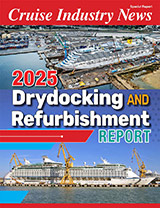The Cayman Islands is working to change the face of tourism in the Caribbean as it goes ‘green’ with the introduction of the Cayman Islands Environmental Project for the Tourism Sector (CEPTS). CEPTS, a joint collaboration between the Cayman Islands Department of Tourism, the Department of Environment and the private sector, is the Caribbean’s boldest response to the environmental issues facing the region, and just one of the ways that Cayman is preserving its natural splendor.
“In common with most countries in the region, tourism development in the Cayman Islands is primarily located within the sensitive coastal zone, and there is a growing local awareness of the need to protect the environmental resources that attract visitors to our destination in the first place,” said the Honorable Minister of Tourism for the Cayman Islands, Mr. Charles E. Clifford. “It is therefore with the sustainability of the tourism industry in mind that I am delighted to announce the first phase of the Cayman Islands Environmental Project for the Tourism Sector is underway.”
The CEPTS program will take place in phases, with Phase I already in effect, focusing on conducting environmental audits and establishing environmental management systems for the tourist accommodations sector. Beginning with hotels on Grand Cayman, Little Cayman and Cayman Brac, these audits will review occupancy, water consumption, wastewater generation and electricity, among other issues, for a baseline period. After these benchmarks, action will then be taken to improve the destination’s environmental performance, with the ultimate goal of having the properties achieve Green Globe 21 Certification, the internationally recognized authority on eco-friendly accommodations. Pilot properties include Southern Cross Club, Little Cayman Beach Resort, and Pirates Point Resort in Little Cayman; and Compass Point, Sunshine Suites and Cobalt Coast Resort in Grand Cayman.
“Smart hotel operators recognize that guests are truly interested in seeking out green qualities, just as they do a spa or free wireless internet access,” said Minister Clifford.
Included in Phase I is the implementation of environmental management systems for the Cayman Islands Department of Tourism and Department of Environment along with one of Grand Cayman’s most notable attractions, Pedro St. James. CEPTS will also focus on the exploration and investigation into Green Globe destination certification for Little Cayman. Little Cayman, predominantly dive tourism-oriented, is virtually car free, a sanctuary for birds and wildlife, and also houses the Central Caribbean Marine Institute’s (CCMI) largest research center.
The Cayman Islands private sector partners are doing their part to lead the way the way in sustainable practices in a variety of different ways, from individual program offerings to the ‘greening’ of the dive industry:
• CCMI has recently published the free “Green Guide to the Cayman Islands,” a booklet which informs visitors and Caymanians alike on the threats facing Cayman’s marine environment along with steps they can take to protect it. In addition to the Green Guide, CCMI also hosts its “Dive with a Researcher” program at the Little Cayman Research Center. The program gives divers an opportunity to become more knowledgeable about coral reef conservation issues and efforts while helping collect and archive data with CCMI’s researchers during dives.
• Cayman Diving Lodge will be an entirely eco-conscious luxury diving resort constructed to green standards, and operating as a fully sustainable operation from the ground up.
• Cayman dive operator Ocean Frontiers is working to make Cayman’s dive industry carbon neutral within five years, beginning with their existing carbon neutrality.
• The Cayman Islands Brewery has constructed a sophisticated waste water treatment, ensuring that all excess grain and yeast goes to local farmers. Management is currently working on a plan to make the brewery generate its own power.
• The Ritz-Carlton, Grand Cayman, has made its Ambassador of the Environment (AOE) program, devised by Jean Michel Cousteau, open to non-guests. The program is dedicated to developing knowledge and respect for the environment, especially for children as young as age four.
• Many restaurants participate in the Cayman Sea Sense program which encourages visitors and residents dining out in the islands to make informed and environmentally positive seafood choices. The program assists local chefs and restaurant owners reduce the number of non-sustainable seafood items on their menus.



